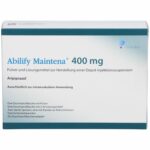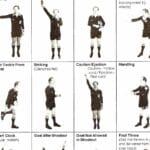Being drugged without your knowledge or consent is a traumatic experience, but recovery is possible. This guide provides crucial steps for immediate action and long-term healing, offering support and resources for survivors. Remember, what happened is not your fault. You are not alone.
Immediate Action: What to Do Right Now
If you suspect you’ve been drugged, immediate action is critical. Even if you’re unsure, it’s always better to err on the side of caution. Suspect you’ve been drugged? Immediate medical attention is critical. Learn how to secure evidence and navigate the emotional aftermath.
- Seek Medical Attention: Go to a hospital immediately. Time is crucial for drug testing, which can be challenging as many of these substances metabolize quickly. This also helps document the incident for legal purposes. If possible, preserve urine samples before going to the hospital, just in case. Tell the medical staff you believe you’ve been drugged; they are there to help.
- Find a Trusted Friend or Family Member: Don’t go through this alone. Having someone with you offers invaluable emotional support and can help ensure your safety as you navigate the next steps. If you’re alone, try to reach someone you trust who can come and be with you.
- Stay Hydrated: If you can, try to drink water. This may help flush the drug from your system, but it’s not a substitute for professional medical care.
- Preserve Evidence (If Possible and Safe): If you can, and if it feels safe to do so, try to save any remaining drink, cups, napkins, straws, or other potential evidence. A trusted friend or medical professional can assist you with this if needed. These items could be important if you decide to pursue legal action.
Navigating the Aftermath: Short-Term Recovery
The initial effects of being drugged can vary depending on the substance used, the amount ingested, and individual factors. From physical effects to emotional trauma, this guide addresses all aspects of recovery after being roofied, offering support and resources for survivors.
Physical Effects
Common physical symptoms may include dizziness, confusion, nausea, difficulty walking, blurred vision, and memory loss. While unsettling, these symptoms typically subside within a day or so. However, some drugs can cause more pronounced or longer-lasting effects. Ongoing research continues to explore the impacts of various substances used in drink spiking. If you are struggling with a major injury, it’s important to seek medical attention.
Emotional Impact
The emotional trauma can be significant, even if you don’t remember all the events clearly. Feelings of fear, vulnerability, anxiety, anger, and shame are common and understandable responses. Don’t try to suppress these feelings; allow yourself to feel what you’re feeling.
The Road to Healing: Long-Term Recovery
Healing from this experience takes time, self-compassion, and support. Numerous resources are available to help you process what happened and regain your sense of safety and control. Beyond Survival: A Comprehensive Guide to Recovering from Being Roofied
- Professional Counseling: Therapy with a professional specializing in trauma and sexual assault can be incredibly beneficial. They can provide a safe space to explore your emotions, develop coping mechanisms, and work through the trauma at your own pace.
- Support Groups: Connecting with other survivors can create a powerful sense of community and validation. Sharing your experience in a supportive environment can be empowering and reduce feelings of isolation.
- Legal Options: You have the right to pursue legal action against the person who drugged you. While this can be a complex and challenging process, it can also be a path towards justice and accountability. Consulting with a lawyer specializing in sexual assault cases is highly recommended.
- Self-Care: Prioritizing your physical and emotional well-being is essential. Focus on healthy habits like regular exercise, nutritious meals, and sufficient sleep. Engage in activities that bring you joy and relaxation, such as spending time in nature, creative expression, or mindfulness practices.
Protecting Yourself: Prevention and Harm Reduction
While the responsibility for preventing drink spiking lies solely with the perpetrator, there are steps you can take to reduce your risk. Roofied: Immediate Steps and Long-Term Healing for Survivors
- Be Vigilant of Your Drink: Never leave your drink unattended, even for a moment. If you do step away, or if anything about your drink seems off (unusual taste, smell, color, or fizziness) get a new one. Avoid accepting drinks from strangers or people you don’t fully trust. If you think weed is stuck in your septum, there are several things you can try to get it out.
- Go Out with Trusted Friends: The buddy system is a valuable safety net. Look out for each other, and establish a plan for staying connected and checking in throughout the night. If someone seems unusually intoxicated or their behavior changes suddenly, take it seriously.
- Be Aware of Your Surroundings and Trust Your Instincts: Pay attention to the people around you. If a situation or person makes you feel uncomfortable, trust your gut and remove yourself. Your safety is paramount.
Recognizing the Signs: Key Indicators of Drink Spiking
Knowing the potential signs of drink spiking can help you protect yourself and others. While these signs aren’t always definitive and can sometimes mimic the effects of alcohol, it’s important to be aware and trust your instincts.
- Unusual behavioral or mood shifts: Sudden changes in behavior, such as increased aggression, excessive affection, or disinhibition.
- Sudden drowsiness, confusion, or disorientation: Feeling unexpectedly “out of it” or struggling to focus.
- Impaired speech, coordination, or cognitive abilities: Slurred speech, stumbling, difficulty thinking clearly, or trouble focusing.
- Decreased inhibitions or poor judgment: Engaging in risky behaviors or making decisions you wouldn’t normally make.
- Memory loss or blackouts: Waking up with little or no memory of the previous night.
- Nausea, vomiting, or dizziness: Experiencing sudden and intense physical discomfort.
- Noticeable fizziness or changes in drink appearance: An unusual amount of fizz, a cloudy appearance, or a change in the drink’s color.
- Unexplained unconsciousness or collapse: This is a medical emergency requiring immediate attention.
Supporting a Friend: How to Help
If someone you care about has been drugged, your support is crucial. Knowing how to help can make a world of difference in their recovery. Don’t face this alone. This guide provides vital information on seeking help, navigating the legal system, and finding support networks.
Immediate Response
- Stay calm and supportive: Your friend likely feels scared and vulnerable. Offer reassurance and a non-judgmental presence.
- Encourage medical attention: Getting medical help quickly is vital for drug testing and any necessary treatment.
- Respect their choices: The decision to report the incident is entirely your friend’s. Support them regardless of their decision.
Ongoing Support
- Create a safe space: Let your friend know they can talk to you without judgment whenever they’re ready.
- Listen actively: Truly hear what they’re saying without interrupting or offering unsolicited advice.
- Encourage professional help: Gently suggest therapy or counseling to help process the trauma.
Resources and Support
- Connect with support groups: Support groups can offer a sense of community and shared understanding.
- Provide resources like RAINN: Organizations like RAINN offer confidential support, information, and resources for survivors.
- Accompany them to appointments: Offer to go with them to medical appointments, therapy sessions, or legal proceedings.
Prevention and Awareness
- Educate yourself about drink spiking: Learn the signs and how to prevent it.
- Be vigilant and watch out for friends’ drinks: Never leave drinks unattended and encourage your friends to do the same.
- Spread awareness to reduce future incidents: Talking openly about drink spiking can help create a culture of safety and vigilance.
Finding Strength and Moving Forward
Recovery is a journey, not a destination. Be patient with yourself, celebrate small victories, and remember that healing takes time. Reach out for support when you need it, and know that you deserve to feel safe, respected, and empowered. You are a survivor. There are people who care and want to help you through this. You don’t have to go through this alone.
- Unlock Water’s Symbolism: A Cross-Cultural Exploration - April 20, 2025
- Identify Black and White Snakes: Venomous or Harmless? - April 20, 2025
- Unlocking Potential: Origins High School’s NYC Story - April 20, 2025















